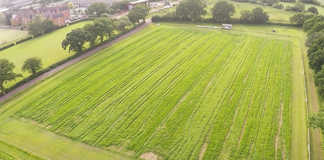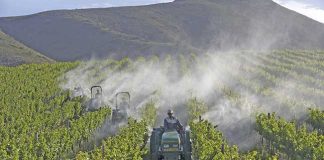
According to a recent Agri SA report, based on official statistics released by the South African Police Service (SAPS), there were 12 567 farm attacks in South Africa, in which 1 733 people were murdered, between 1996/1997 and 2017/2018.
This is an average of 661 farm attacks and 91 murders a year.
However, figures published by TAU SA are higher than those cited by Agri SA. Reliable statistics are important in combating any form of crime, and it’s in the interest of the entire farming sector that these two organisations get together to resolve the discrepancies.
READ Farm crime: an unbearable burden
It is even more important when you remember there are those who don’t like us drawing attention to farm-related crimes.
Consider the way that certain academics criticised Afriforum’s CEO Kallie Kriel and deputy CEO Ernst Roets for their trip to the US to create awareness of farm attacks and government’s proposed plan to expropriate land without compensation.
While some of their utterances in the US media were unacceptable, there is no doubt that the problem will not go away if we stop talking about it.
Moreover, if Afriforum is to be openly criticised for its actions in this regard, so must politicians who preach violence against farmers.
A constant fear of being the next victim
Much of the criticism of those who talk about farm attacks is based on the fact that the statistics show the rate of farm murders is actually lower than the general murder rate in South Africa.
This may be true, but there’s no doubt that farming communities live under a constant threat of being attacked.
While it’s true that rural communities globally are vulnerable to crime, farm attacks seem to be a uniquely South African phenomenon.
In addition, the overall level of crime in South Africa is too high. Poverty and unemployment are among the main factors behind this, and the unacceptably high crime level is not a problem that can be solved easily.
Education and training, job creation, and an improvement of the crime prevention systems can in the long run result in less crime. In the shorter term, security will probably remain a do-it-yourself issue.
In urban areas, people are accustomed to providing their own security with alarm systems, gated communities and the like.
For farmers, security is more difficult and expensive. They live in remote areas and cannot rely on a quick response from the police.
“We, in cities, have access to several police stations near us,” says Western Cape Chief of Detectives, Major General Jeremy Vearey. “The people in Ceres [for example] do not have that. In many areas they cannot even use a phone to contact law enforcers. We ought to be represented there where government is least represented.”
Fortunately, farmers do have access to the AgriSecuritas Trust Fund for community-based crime-prevention strategies.
Over the years, the fund has contributed towards farm safety systems with funding for the installation of cameras, communication systems and booms, as well as the provision of safety equipment. It also provides trauma counselling for farm attack victims.
Successful cooperation
In addition, there are certain actions that you can take as a farmer to reduce the chances of an attack.
Here are just three: never keep large sums of cash in the house; pay your workers by direct transfer into their bank accounts; if possible, do not sell livestock or products for cash.
Government closed down the Commando system and, to date, no real official system has replaced it. However, farming communities have developed their own, informal structures in its place.
And there are many examples of where successful cooperation between the SAPS and rural communities has limited rural crime.











